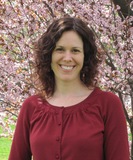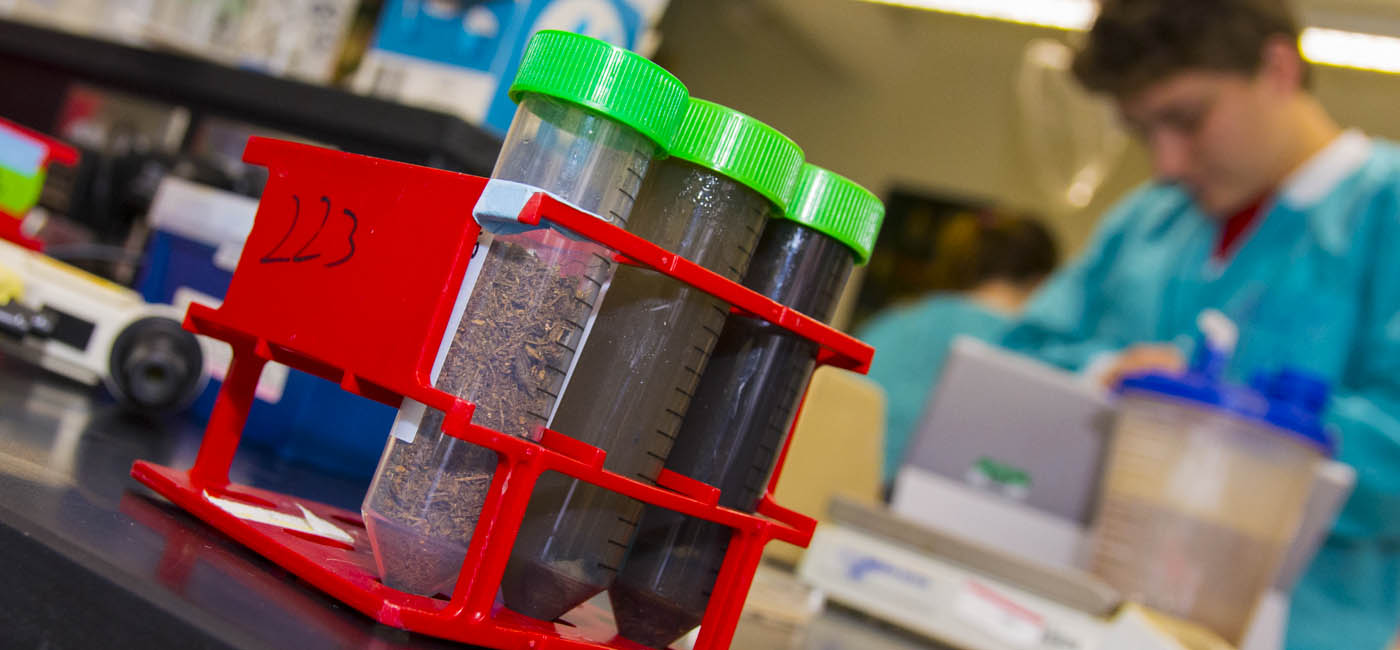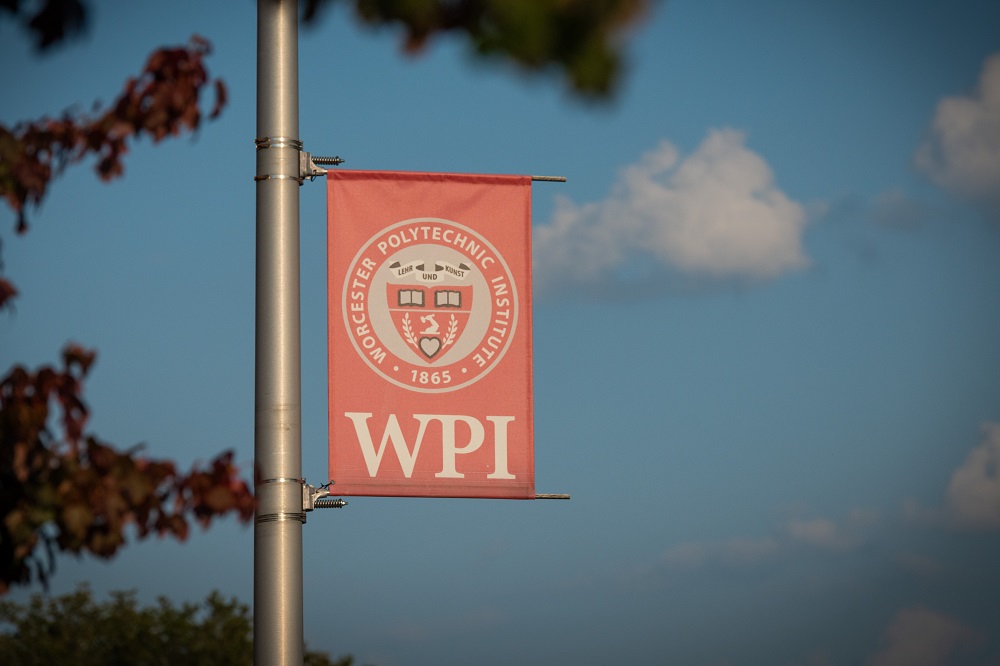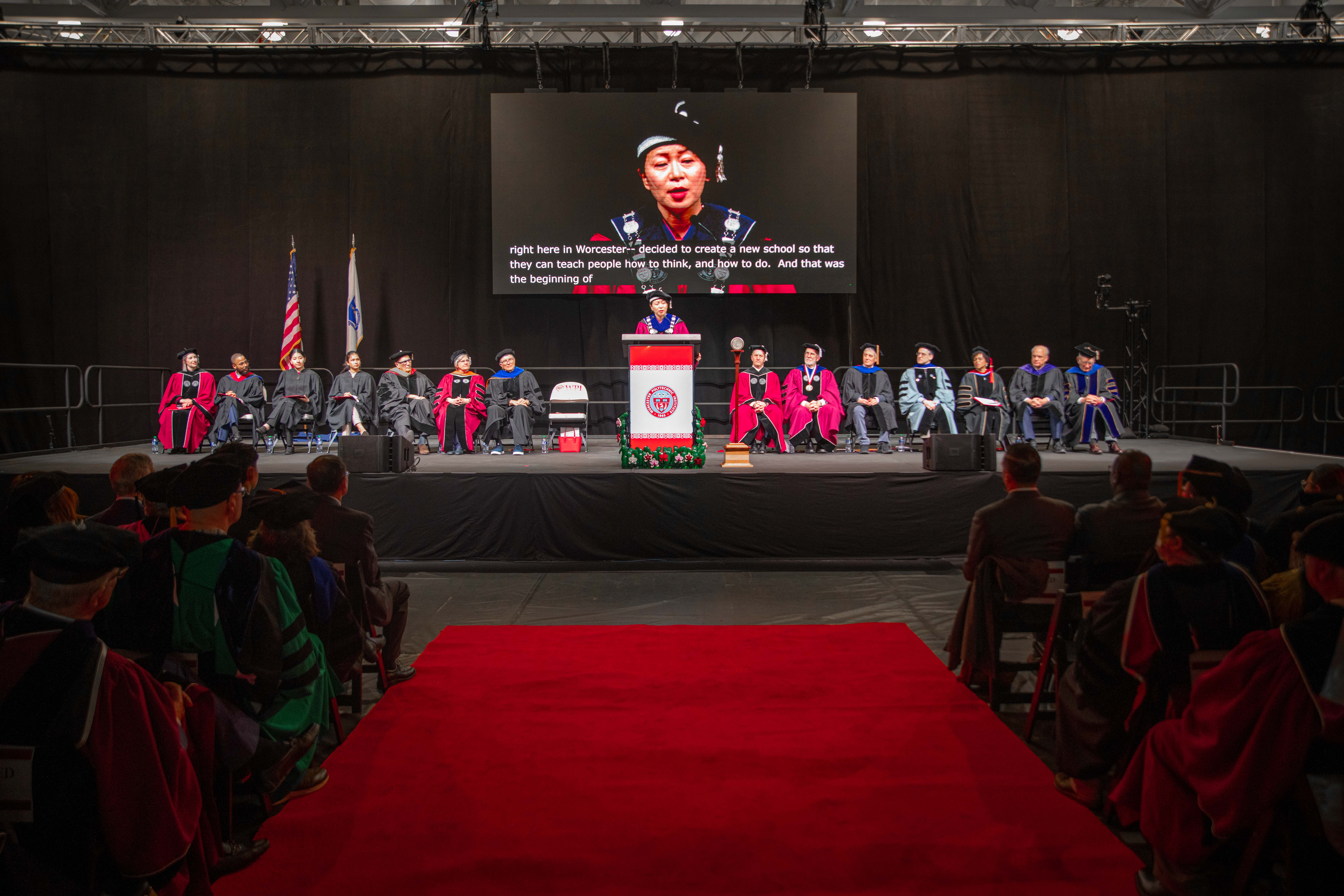
WORCESTER, Mass.–Today, Jeanine D. Plummer, director of the Environmental Engineering Program at Worcester Polytechnic Institute (WPI), was installed as the first Alena and David M. Schwaber Professor of Environmental Engineering during a ceremony held on campus. The endowed professorship was established in 2008 through a $2 million gift from David M. Schwaber ’65 and his wife, Alena Schwaber.
- Read the remarks John Orr, WPI’s provost, delivered during the installation.
- Read Professor Plummer’s remarks.
The professorship recognizes a distinguished scholar and educator in the field of environmental engineering within the Environmental Engineering Program at WPI, which offers an interdisciplinary major that draws on the expertise of faculty members in chemical engineering, civil and environmental engineering, and mechanical engineering. Knowing that environmental engineers face challenges that span multiple disciplines, WPI’s program seeks to provide students with a broad background that integrates knowledge from the sciences, mathematics, engineering, and the humanities and social sciences. Plummer was appointed the program’s first director upon its inauguration in 2006.
"Jeanine Plummer has established herself as leader and an outstanding professor through her exceptional teaching and her vitally important research," said John Orr, WPI’s provost and senior vice president. "It is not an understatement to say that Plummer, as the director of WPI’s Environmental Engineering Program, and her students are engineering a better future for the planet and its people. I am delighted that we are able to recognize her accomplishments and her many contributions to the WPI community in this way, and I am deeply grateful to the Schwaber’s for making this endowed professorship possible."
Plummer, who joined the WPI faculty in 1999, received a BS in civil engineering from Cornell University and an MS in environmental engineering and a PhD in civil engineering from the University of Massachusetts, Amherst. In her research, Plummer explores factors that affect the quality of drinking water and innovative technologies for detecting and removing contaminants. This work has been supported by the National Science Foundation and the U.S. Department of Agriculture.
In 2008, Plummer was named Professor of the Year for Massachusetts by the Council for the Advancement and Support of Education (CASE). WPI has also honored Plummer: with the Board of Trustees’ Award for Academic Advising (in 2005) and the Board of Trustees’ Award for Outstanding Teaching (in 2006).
An active member of the American Water Works Association, she was named a trustee of the Water Science and Research Division in 2009. She is also a member of the Association of Environmental Engineering and Science Professors and the Council of Environmental Deans and Directors, among other organizations.
David Schwaber holds two degrees in chemical engineering: a BS from WPI, where he developed his interest in polymer chemistry, and an MS from Cornell University. He earned a PhD in polymer science at Akron University and spent most of his career at his family’s business, Monarch Rubber Company, where he rose to become president. At the company, Schwaber developed the revolutionary EVA cushioning for athletic shoes, but saw its business wane when American shoe manufacturing began moving to Asia. Drawing on the problem-solving skills he learned at WPI, he helped Monarch reemerge as a manufacturer of polymeric gasketing materials.
As Monarch’s president, he continually faced the challenge of recycling manufacturing waste. The experience led to his passion for the environment and environmental engineering, and his desire to inspire that passion in others. "It’s important that scholars have a strong voice in helping solve the ecological and health crises in the world," he says. "I’m excited about helping WPI rise to that challenge."




